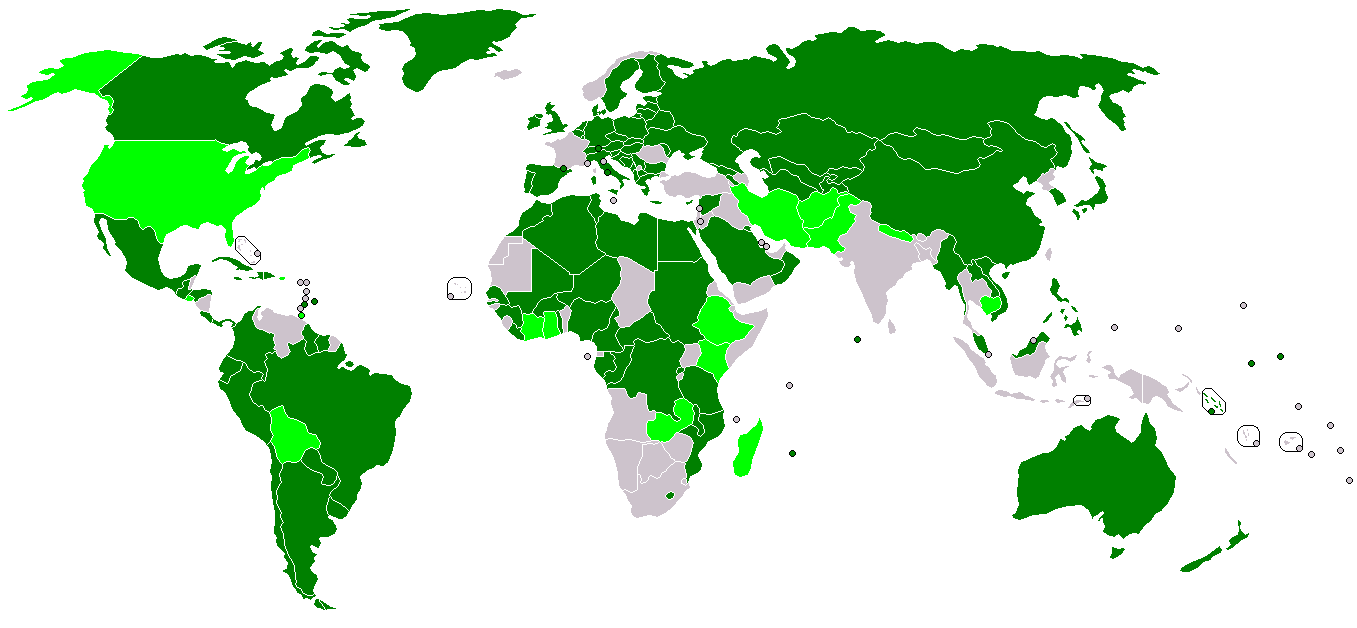Typically a sovereign nations constitution represents the highest law of the land, as it defines the framework for all other laws that that come after it. Using the United States as an example then it becomes clear what would occur in this situation for the United States as it clearly declares that a Treaty is to be a "Law of the Land"
This Constitution, and the Laws of the United States which shall be made in Pursuance thereof; and all Treaties made, or which shall be made, under the Authority of the United States, shall be the supreme Law of the Land; and the Judges in every State shall be bound thereby, any Thing in the Constitution or Laws of any State to the Contrary notwithstanding.
For the United States however the Constitution is the supreme law of the land and supersedes everything else, meaning that if such a Treaty were ratified that it directly violated the Constitution then it would be invalid and could be challenged in the Supreme Court.
International Law however disagrees. A Treaty is the highest form of law between two countries and is binding between two states as a contract (barring the treaty doesn't violate any other International Laws and that the Treaty was passed valid per the states rules on ratification of Treaties).
This applies to all 112 countries that have ratified the Vienna Convention on the Law of Treaties.
http://untreaty.un.org/ilc/summaries/1_1.htm
Again however, this International Law on treaties is meaningless to the United States as it had only signed the Law of Treaties but did not in fact ratify it per our Constitution. This essentially means that the United States deems itself perfectly legal to enter into, leave or break treaties of its own will regardless of International Law.
This also happens to be the case for Bolivia believe it or not (Dark green are countries that Ratified the Treaty of Laws, Light Green are Signatories)!

Interestingly enough I think the case can be made that the Treaty is completely invalid for Bolivia.
Bolivia did not ratify the Vienna Convention on Law of Treaties so they are not legally bound to it by International Law.
Even if it had been a ratifying state, it is still invalid because the Bolivian government was wrong to ratify it according to Article 27, Vienna Convention on the Law of treaties. A party's consent to a treaty is invalid if it had been given by an agent or body without power to do so under that state's domestic law.
IANAL, but I think a strong case can be made that in this specific case that the Bolivian Treaty is invalid.
How this can be resolved is dependent on how the Constitution of that country specifies potentially invalid laws are to be challenged. Typically this would be through a Higher Court of some kind.